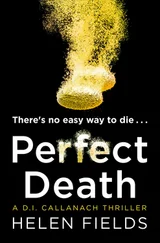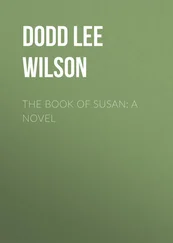They passed the airport, Brighton le Sands, drove towards Cronulla. The suburbs were quiet, damp, their leafy front yards deserted but for kids’ bikes and garden hoses scribbled on concrete driveways. Australian flags were draped in the windows of a few houses, as though a parade had passed by.
They turned onto the highway, headed for Wollongong.
“What’s down this way?”
The detective yawned. “Gotta see a man about a dog.”
“You really think Glendenning’s going to believe I had something to do with Kass’s murder? He’s not as stupid as you.”
“He already believes it, Jackie boy.”
“Just like that? No evidence necessary? I thought that was priests, not the police.”
“Who says there’s no evidence?” Peterson grinned into the rear-view mirror.
Jack tried to adjust his wrists inside the tight handcuffs. Everything was starting to feel tight: his neck, shoulders, his lungs, his stomach. He looked through the window. Oncoming traffic drove by, people off to work. A nice job in a bank, his mother used to say. A cheap loan, buy a house, get married. Two or three kids. Live like a normal person.
They followed the highway for a while then turned off and took the coast road, climbing gradually, cutting through hill flanks thick with trees. Sharp morning sunlight pierced the clouds and dappled the car. Jack’s ears popped. There were glimpses of the deep blue Pacific on their left. The coastline was all cliffs and jutting headlands and hemmed in beaches only fish and seagulls could get to. Further out the horizon was endless, blurred by mist and glare. Everything was big: Jack’s life had never seemed so small.
Peterson wound his window down and cold air blustered in, raw and wet and clean. They passed Stanwell Park. A few more bends and then onto an unsealed road. It followed the coast for a while until it swung up into the trees covering a long hill. No cop stations here. No nearby neighbours either. Everything was perfectly still. The bush was damp with shadows, cold and silent. Jack listened to the car tyres splash through puddles and chew the coarse paste of wet dirt road. His uneasy feeling had a sudden growth spurt. He knew where they were going.
It was dark the last time Jack passed through, but he remembered the loaded calm around him: like a gun on the ground, just waiting for somebody to pick it up.
“So how’s Ziggy?” The words caught in his throat as though they were written on wet pieces of cardboard.
Detective Geoff Peterson looked into the rear-view mirror. His face was hard and cold as tombstone granite. That Nazi face again. He returned his eyes to the road. “Dying to see you, Jack.”
“And why’s that?”
The detective shook his head.
“Come on,” said Jack. “I’m not the corrupt cop. You tell me.”
“Don’t think I can’t deliver you with a broken jaw.” Peterson swung the car left, hard, just missing a huge rock by the edge of the road. Jack fell across the back seat, hit the door with his shoulder.
“Shouldn’t be so touchy, Detective. The touchy ones never last.”
“I wouldn’t worry about me if I were you.”
Jack flicked hair out of his eyes, stared at the back of the detective’s head. He was trying to think, tune his thoughts, and got nothing but static.
“What does he want with me?”
Peterson laughed. He parked the car under a sagging pepper tree that somebody had planted for shade.
“Your balls is what he wants, Jackie boy. What else?”
The weatherboard cottage was at the top of a long climb of cracked concrete steps: a little hilltop hideaway where Ziggy Brandt liked to bring some of his girlfriends. Or sometimes his business associates — those who needed what Ziggy liked to call convincing . Jack had never been inside, never climbed the steps, was always made to wait down in the car. Looked like he was going to get his opportunity today.
The detective opened the car’s back door and grabbed him by the arm.
“What’s all this got to do with setting me up with Kasprowicz?”
“Move.” Peterson dragged him out of the car and up to the steps. Jack stumbled, his legs wobbly from sitting down. The fresh air was sharp in his nose.
“You’re going to get into a lot of trouble, Detective,” he said, trying to believe it.
“Keep moving.”
They reached the top of thirty steps. Wet, ankle-high grass strapped their shoes as they walked over to another set of steps that led to some decking. Rusty nails creaked in the timber. Peterson held Jack by the arm and pulled open a torn screen door. He pushed a key into the front-door lock and swung it open. A musty smell: dead air and old carpet. The detective shut the door behind them. Jack had the feeling he had just been sealed in a box.
Peterson sat him down in a cane chair. He unlocked the handcuff on Jack’s left hand and clamped it onto the armrest. It was a fairly large L-shaped room with a low ceiling. There was a breakfast bar cordoning off a kitchen area down the shorter length of the L. Orange walls and a thin carpet of pale green. The light fittings were long tubes like cartoon torpedoes, with brass brackets. It reminded Jack of his childhood home. Not that he was comforted.
Detective Geoff Peterson walked over to a window that looked down the way they had come and peered through a crack in its dusty yellow curtain. Then he took his mobile phone out and stared at the screen. He pushed some buttons with his thumb. He brought it to his ear and listened and looked through the curtain again.
“I like anchovies,” said Jack. “And get some garlic bread.”
The detective ignored him. “It’s me,” he said into the phone. “I’m here.” He frowned as he listened. “You think I’ve got all fucking day to hang around?” He flicked the curtain with a bony forefinger. “Well don’t piss about.” He snapped the mobile shut.
“You going to tell me what’s going on?”
Peterson stared at Jack, said nothing. He flipped his phone open and dialled another number. He turned to peer through the curtain again. The hard look on his face softened. “It’s me … Yeah, I’m down here … Not till later … I know, I know … No, that’s all fine … Okay … Don’t be long, baby.”
The detective smiled and slipped the phone into his pocket. When he noticed Jack looking at him, his face turned into a fresh scowl.
“I bet she’s a real looker,” said Jack. “What’s the cop discount these days?”
“You know what, Susko? I’m not going to hit you. I think I’ll shave your head instead.”
“How long you been working for Ziggy?”
“You don’t believe me, do you?”
“Must be nice, the extra money. What am I worth?”
Peterson looked at him smugly. “A dollar-fuck-all.” He glanced through the curtain again. “This is just a small favour. A little token of thanks. Like a block of chocolate.” The detective turned back to Jack. He laughed. “You look confused. It’s your big gob, Jack. Spraying too much spit around. It was always going to get you into trouble.”
“What are you talking about?”
“Ask your friend Chester.”
“Sinclair? Come on, Geoff. You expect me to —”
“No joke, Jackie boy. He had plenty to say to me and Detective Sergeant Glendenning about you and all your wonderful adventures. Mr Brandt was very interested.”
Jack shook his head. Jesus Christ . Chester had asked Jack about Ziggy Brandt once, about his time driving for him. Jack had been vague: but all he had done was give Sinclair room to stretch his ridiculous imagination. Jack could see Chester talking himself into it with gusto, a whole load of fantastic bullshit, feeding it to the cops in buckets.
“Ziggy knows I’d never say a word,” said Jack, mustering a little confidence in his voice. “And even if I were as stupid as you, he wouldn’t go to all this trouble just to fuck me over.”
Читать дальше












